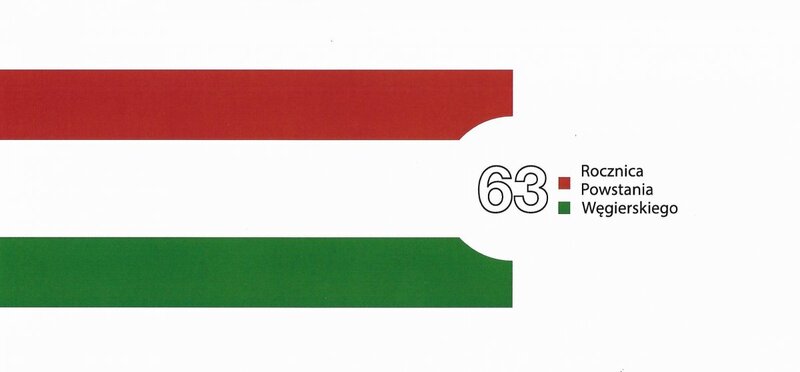The Poznań Branch of the Institute of National Remembrance, the Balassi Institute, the Hungarian Cultural Institute in Warsaw and the City of Poznań would like to invite you to the celebrations of the 63rd anniversary of the 1956 Hungarian Uprising, which will be held by the plaques commemorating Peter Mansfeld and Romek Strzałkowski on 23 October 2019.
The artistic and educational part of the celebrations entitled "Poznań and Budapest as cities of Freedom - 1956, 1989" will start at 1:30 p.m. at the Rialto Cinema. The program will further include: film screenings, lectures and a concert of the Tamás Szarka Trio.
The Hungarian revolution of 1956 began on 23 October with a rally of students in Budapest as a sign of solidarity with Poland. The demonstrators referred to the workers' uprising of 28 June 1956 in Poznan. The Hungarian Revolt was an attempt of the Hungarian people to free themselves from Soviet domination and break the monopoly of the communist party. Unfortunately, this heroic act of courage was bloodily suppressed by the Soviet army, which entered Budapest on 4 November 1956. In total 2,700 Hungarians were killed as a result of the Soviet intervention, and almost 20,000 were wounded. Due to the situation prevailing after the revolution in Hungary, about 200,000 people who feared repression, fled the country. The communist authorities in Hungary brought nearly 26,000 people to court, 230 death sentences were given in show trials.
The youngest victims: Romek Strzałkowski and Peter Mansfeld are the symbols of the Poznań Workers' Uprising of 28 June 1956 and the Hungarian Revolution of 1956. Both boys died as a result of the repression that the communist authorities used against participants in the events of 1956. Peter was hanged a few days after he was 18 years old. Thirteen-year-old Romek Strzałkowski was shot dead on 28 June 1956.
Poles, especially the inhabitants of Poznań and the Wielkopolska region, offered their help to the fighting Hungarians. They supplied the needy with the most important gift of all - blood - saving human lives. According to historians, the first two planes departed from the Poznań airport on 29 October. In total, apart from blood, the inhabitants of Poznań sent 100 kg of medicine and medical supplies, 20 tons of food, 86 elements of outpatient equipment to Budapest. They also donated over one million zlotys to the Polish Red Cross. The inhabitants of other Polish cities in the region also demonstrated their willingness to help, with as many as 3,500 families from the Poznań Province offering to provide shelter for Hungarian children. On 30 October the students of Poznań organized a rally for the Hungarian nation.
